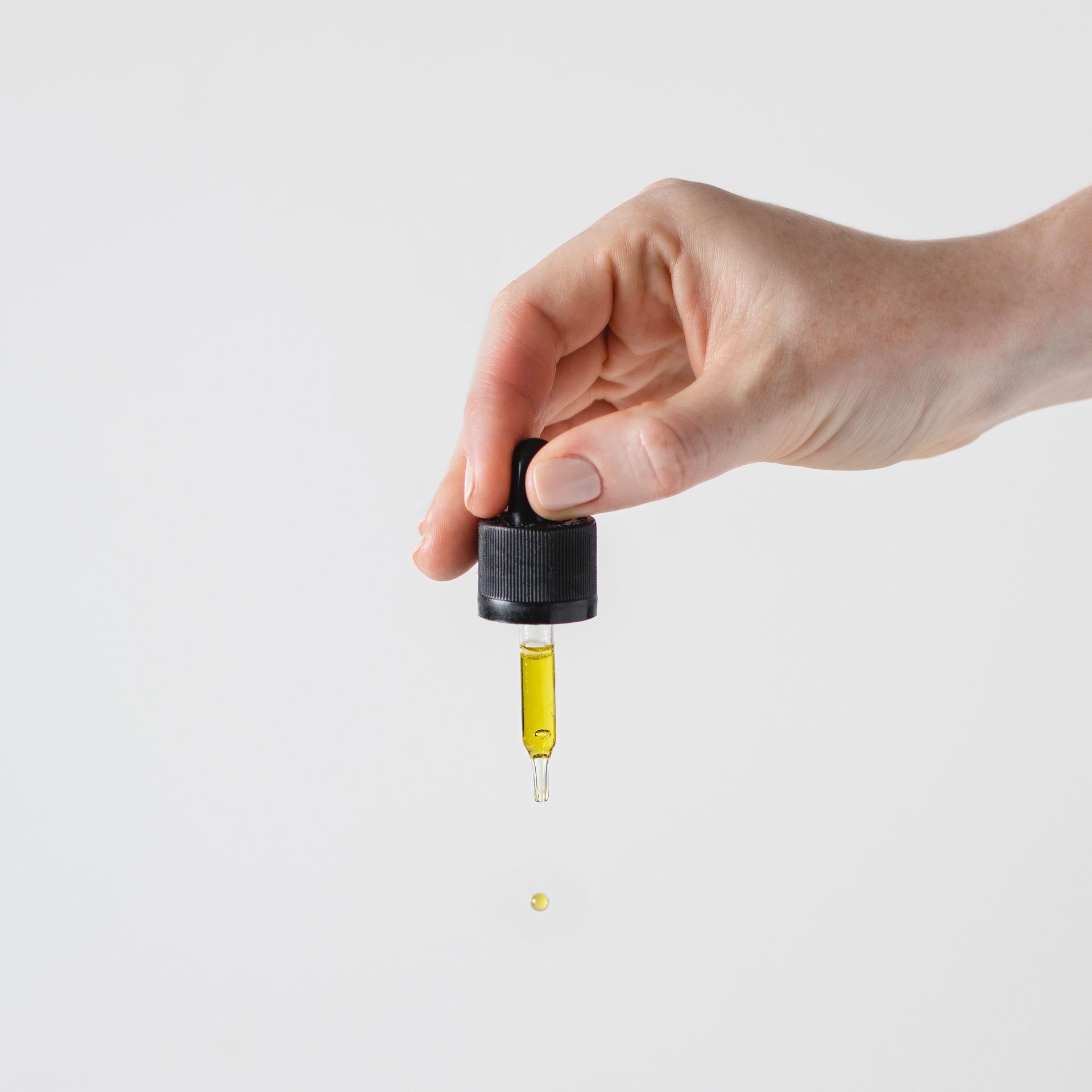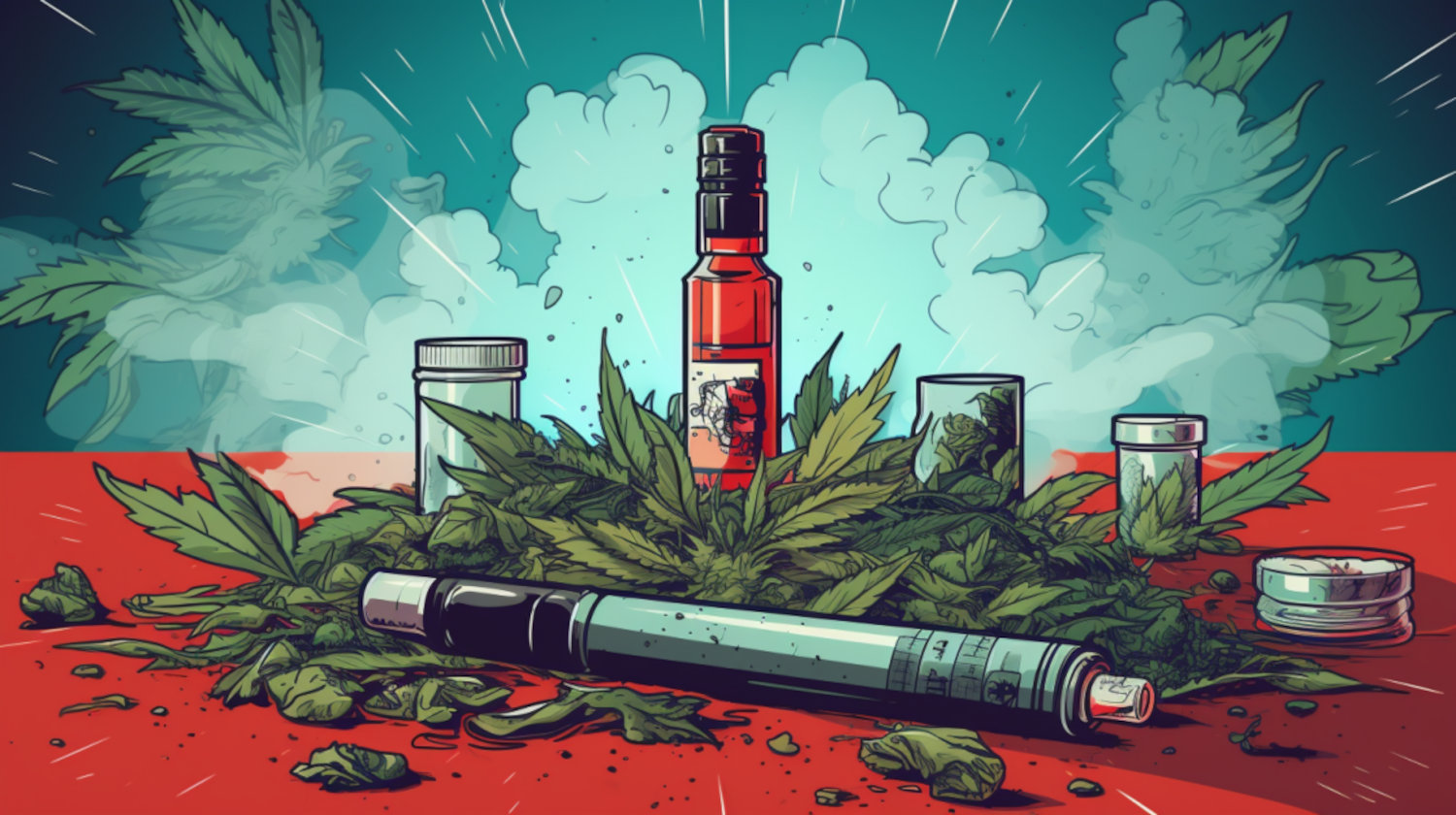The passing of the Farm Bill in 2018 legalized the cultivation and manufacturing of hemp and its products. This legislation opened the floodgates to what seems to be an endless stream of minor cannabinoids that have entered the market.
Hemp, similar to high-THC cannabis, produces THC but in amounts less than 0.3%, meaning it's CBD-rich. As a result, companies, especially in states where high-THC cannabis remains illegal, have started to look to CBD and accompanying minor cannabinoids to fill the void of the lack of intoxicating products available to consumers.
You may have heard of delta-8 THC and delta-9 THC, but another type of product has begun to fill shelves: delta-6 THC. What is known about delta-6 is extremely limited, but there is still information to learn about the cannabinoid and its effects.
What is Delta-6?
What is understood about delta-6 is so limited that it is still unclear what its chemical structure looks like compared to delta-9. There have been few studies on the cannabinoid, with the first being on its discovery in 1966 and the second indicating it can cause muscle rigidity and immobility in mice, but neither provides further insight to help understand its effects.1,2 It is found in trace amounts in the cannabis plant but is mainly derived from CBD, making it a semi-synthetic cannabinoid.
Similar semi-synthetic cannabinoids have also started to flood the market, like delta-8. delta-8 is better understood in that it mimics the effects of THC and may cause intoxicating effects.3 It also seems readily available in states and stores where hemp-derived products are legal. Delta-6 is similar to other cannabinoids on the market, like delta-10, delta-11, and delta-12, in that there is very little research to support the benefits and risks of consuming them.
What are the Effects and Benefits of Delta-6?

The effects and benefits of delta-6 remain unclear despite it being a legal cannabinoid available for purchase. Even consumers who claim to have tried the product have peculiar feedback. However, it seems more likely that this is due to the inclusion of other cannabinoids, like THC-P, or additives in unregulated products. The one benefit may be that it is an option for people who may not have access to legal high-THC cannabis or CBD with above 0.3% THC.
Potential Risks and Drawbacks of Delta-6

Although it is unknown what the specific risks are when consuming delta-6, the Centers for Disease Control and Prevention (CDC) warns of the dangers of synthetic cannabinoids. Adverse side effects can include rapid heart rate, hallucinations, vomiting, and confusion.
Delta-6 vs. Other Cannabinoids
| Cannabinoid | Intoxicating? | Pros | Cons |
| Delta-6 | Unknown | Unknown | Semi-synthetic |
| Delta-8 | Yes | Similar effects to THC4 and more accessible in areas where high-THC cannabis remains illegal. | Semi-synthetic |
| Delta-9 | Yes | Found naturally in the plant, it has potential anti-anxiety and anti-inflammatory properties and may be beneficial for mood and sleep disorders.5 | May cause anxiety, paranoia, increased heart rate, panic, or, in extreme cases, hallucinations.6 |
| Delta-10 | Potentially | Unknown | Semi-synthetic |
| Delta-11*Not to be confused with Hydroxy-11* | Potentially | Unknown | Semi-synthetic |
| Delta-12 | Unknown | Unknown | Semi-synthetic |
Delta-6 Products

Delta-6 products are available for purchase at some store-front and online retail stores. Still, since there is limited research to support the claims of effects or provide any insight into how they affect the body, we cannot ethically recommend any brand or delta-6 product.
Delta-6 tends to come in vape cartridges as a concentrate and in edibles, like gummies. Since there are potential side effects of consuming semi-synthetic cannabinoids, it's best to ensure that if you choose to buy delta-6 products, you can look for independent lab test results of the product and purchase from a reputable retailer.
Delta-6 FAQ
Is delta-6 safe to use?
No research supports the safety or risk factors of consuming delta-6. It is a semi-synthetic cannabinoid, which the CDC has issued warnings for. Personal accounts of how the cannabinoid feels when consumed are also limited.
Is delta-6 legal?
Delta-6 is legal to infuse into products and sell in states that have not banned semi-synthetic cannabinoids like delta-8 THC. It is a newer cannabinoid on the market that may also be difficult to find. That said, check your local government laws, as some states have started to identify cannabinoids they don't want to be sold to their residents.
Where is delta-6 legal?
While delta-6 may be legal on a federal level, some states have banned its sale due to its semi-synthetic nature. These states include Alaska, Arizona, Arkansas, Colorado, Delaware, Idaho, Iowa, Kentucky, Mississippi, Nevada, New York, North Dakota, Oregon, Tennessee, Texas, Vermont, and Washington.
Is delta-6 stronger than delta-9 THC?
Despite marketing claims, no research clarifies how potent delta-6 is compared to delta-9 THC.
What is delta-6 used for?
The effects of delta-6 remain unknown, and the selection of online products is limited. What exactly it can be used and consumed for remains unknown beyond its potential to be available in areas where high-THC cannabis remains illegal.
Is delta-6 intoxicating?
There is no research to support whether or not delta-6 is intoxicating. Some online publications claim it may be a mild experience, but there doesn't seem even to be anecdotal evidence to support the claim either.
Is delta-6 the same as CBD?
No, delta-6 and CBD are not the same. They are two different cannabinoids. CBD is a well-known and studied cannabinoid with a variety of potential therapeutic applications. Delta-6 is a new cannabinoid with little to no research to support any of its usage.
References
- Hively RL, Mosher WA, Hoffmann FW. Isolation of trans-Δ 6 Tetrahydrocannabinol from Marijuana. Journal of the American Chemical Society. 1966;88(8):1832-1833. doi:https://doi.org/10.1021/ja00960a056
↩︎ - Ohlsson A, Widman M, Carlsson S, Ryman T, Strid C. Plasma and brain levels of delta 6-THC and seven monooxygenated metabolites correlated to the cataleptic effect in the mouse. Acta Pharmacol Toxicol (Copenh). 1980;47(4):308-317. doi:10.1111/j.1600-0773.1980.tb03660.x
↩︎ - Food and Drug Administration. 5 Things to Know About Delta-8 Tetrahydrocannabinol: Delta-8 THC. Mo Med. 2022;119(1):21-22.
↩︎ - Kruger JS, Kruger DJ. Delta-8-THC: Delta-9-THC's nicer younger sibling? Journal of Cannabis Research. 2022;4(1). doi:https://doi.org/10.1186/s42238-021-00115-8 ↩︎
- National Academies of Sciences, Engineering, and Medicine, Health and Medicine Division, Board on Population Health and Public Health Practice. Therapeutic Effects of Cannabis and Cannabinoids In: The Health Effects of Cannabis and Cannabinoids: The Current State of Evidence and Recommendations for Research. National Academies Press (US); 2017. https://www.ncbi.nlm.nih.gov/books/NBK425767/
↩︎ - Turner AR, Spurling BC, Agrawal S. Marijuana Toxicity. In: StatPearls [Internet]. StatPearls Publishing; 2023. https://www.ncbi.nlm.nih.gov/books/NBK430823/
↩︎
The information in this article and any included images or charts are for educational purposes only. This information is neither a substitute for, nor does it replace, professional legal advice or medical advice, diagnosis, or treatment. If you have any concerns or questions about laws, regulations, or your health, you should always consult with an attorney, physician or other licensed professional.




